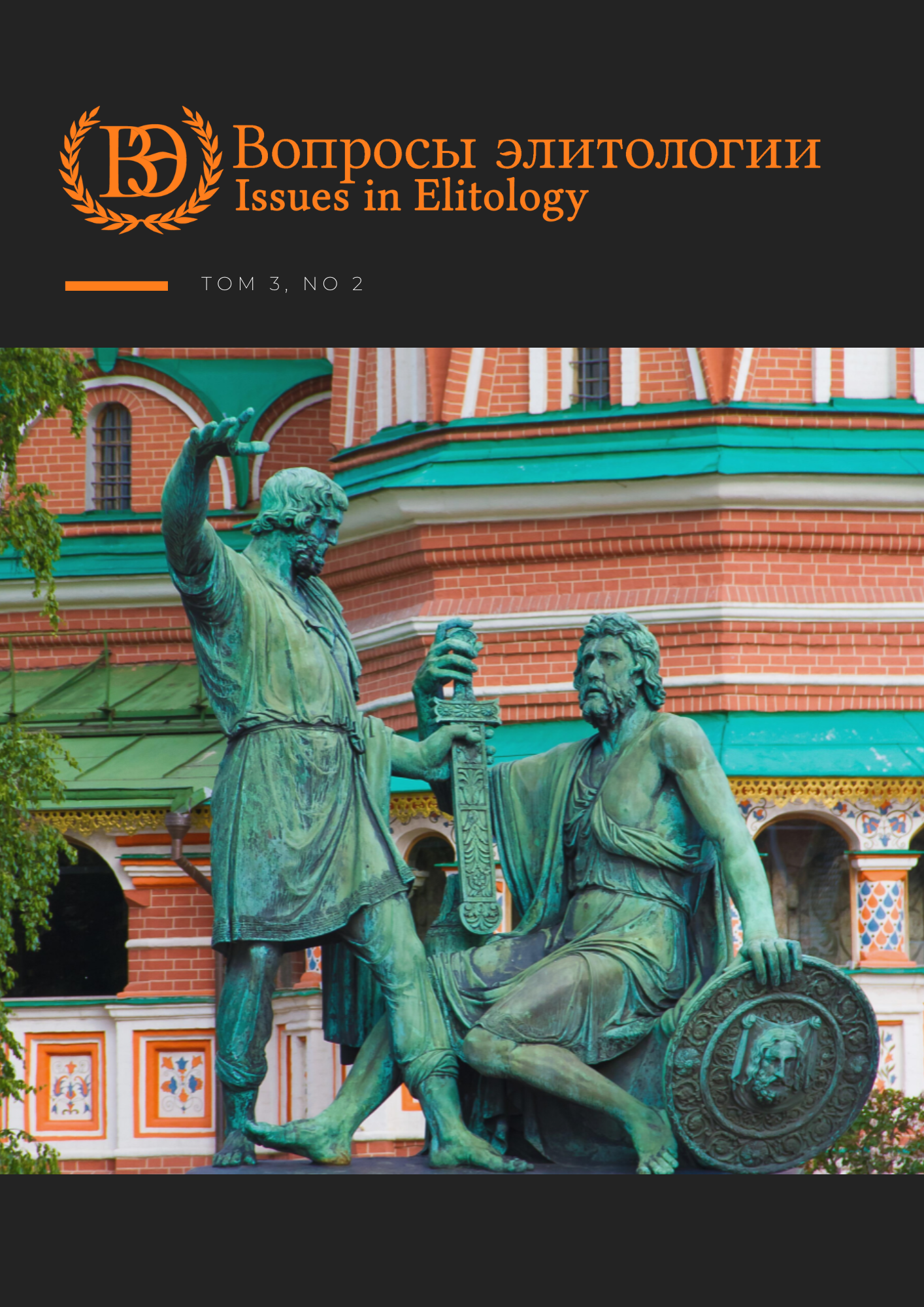Abstract
An important characteristic of the contemporary political process in the countries of the Middle East and North Africa (MENA) is the plurality of its actors. Among them, one can single out the military elites, who began to play a significant role in the political life of the region after the collapse of the colonial system. At present, in a number of MENA states, a new wave of growth in the participation of the army in the political process is observed. In this context, the primary goal of this study is to identify the degree of involvement of military elites in the system of state administration and determine the prospects for closed political systems based on the principles of militocracy / military dictatorship and stratocracy. The article defines the high degree of participation of the army in the political process of some MENA countries, associated with the consequences of a series of political upheavals during the period of the «Arab Spring», which formed a public demand in countries such as Egypt, Algeria, Sudan and Libya to revise the structure of the political systems of these states. The analysis of the problems stated in the work contributes to the deepening of scientific and practical knowledge in the field of regional studies and elitology, and also emphasizes the leading role of military elites in the political process of the MENA states.
References
Akamo, J. O. (2022). Laying the Groundwork for Peace in a Fragmented Libya. JOINT Brief, 8, 5-6.
Ali, N. (2022). Stubborn Historical Legacies: Power Relations and Government Policy in Sudan. In Economic Research Forum Working Papers (No. 1551).
Barakat, Z., & Fakih, A. (2021). Determinants of the Arab Spring Protests in Tunisia, Egypt, and Libya: What Have We Learned?. Social Sciences, 10(8), 282. doi: 10.3390/socsci10080282
Barmin, Y. (2022). Revolution in Libya. In Handbook of Revolutions in the 21st Century (pp. 725-738). Springer, Cham. doi: 10.1007/978-3-030-86468-2_28
Castoriadis, C. (1981). Towards Stratocracy. Le Debat, 12(5), 5-17.
Cordesman, A. H. (2020). Greater Middle East: From the «Arab Spring» to the «Axis of Failed States». Center for Strategic and International Studies (CSIS).
Cronin, S. (2013). Armies and State-building in the Modern Middle East: Politics, Nationalism and Military Reform. Bloomsbury Publishing.
Entelis, J. P., & Naylor, P. C. (2019). State and society in Algeria. Routledge.
Erdağ, R. (2019). After the failed military coup: The need for the organizational reform in the Turkish military. All Azimuth: A Journal of Foreign Policy and Peace, 8(1), 55-68. doi: 10.20991/allazimuth.428313
Gouliamos, K., & Kassimeris, C. (2013). Stratocracy: The Growing Hypertrophy of the Lifeworld Militarization. In The Marketing of War in the age of Neo-Militarism (pp. 9-22). Routledge. doi: 10.4324/9780203130742
Hurewitz, J. C. (2019). Middle East Politics: the Military Dimension. Routledge.
Khuri, F. I. (2021). The Study of Civil–Military Relations in Modernizing Societies in the Middle East: a Critical Assessment. In Soldiers, Peasants, and Bureaucrats (pp. 9-27). Routledge.
Kim, N. K., & Kroeger, A. M. (2018). Regime and Leader Instability under Two Forms of Military Rule. Comparative Political Studies, 51(1), 3-37. doi: 10.1177/0010414016688009
Lenze Jr, P. E. (2021). Algeria: Military Past as Prologue. In Oxford Research Encyclopedia of Politics. doi: 10.1093/acrefore/9780190228637.013.1791
Manfredi Firmian, F., & Mirghani, O. (2022). Can Sudan's Democratic Transition Be Salvaged? Middle East Policy. doi: 10.1111/mepo.12622
Miehe, L., & Roll, S. (2019). Three Scenarios for the Development of the Sisi Regime in Egypt. London: Research Assistant of the Middle East and Africa Division at SWP.
Mirgorod, D. A. (2019). From the Trenches to the Throne: the Phenomenon of «Military Monarchies». Retrieved from Russia in Global Affair website: https://globalaffairs.ru/articles/iz-okopov-na-tron-fenomen-voennyh-monarhij/ (In Russian).
Smith, D., Elias, N., & Foucault, M. (1999). «The civilizing process»: Comparing Norbert Elias and Michel Foucault. Theory and Society, 28(1), 79-100.

This work is licensed under a Creative Commons Attribution 4.0 International License.


